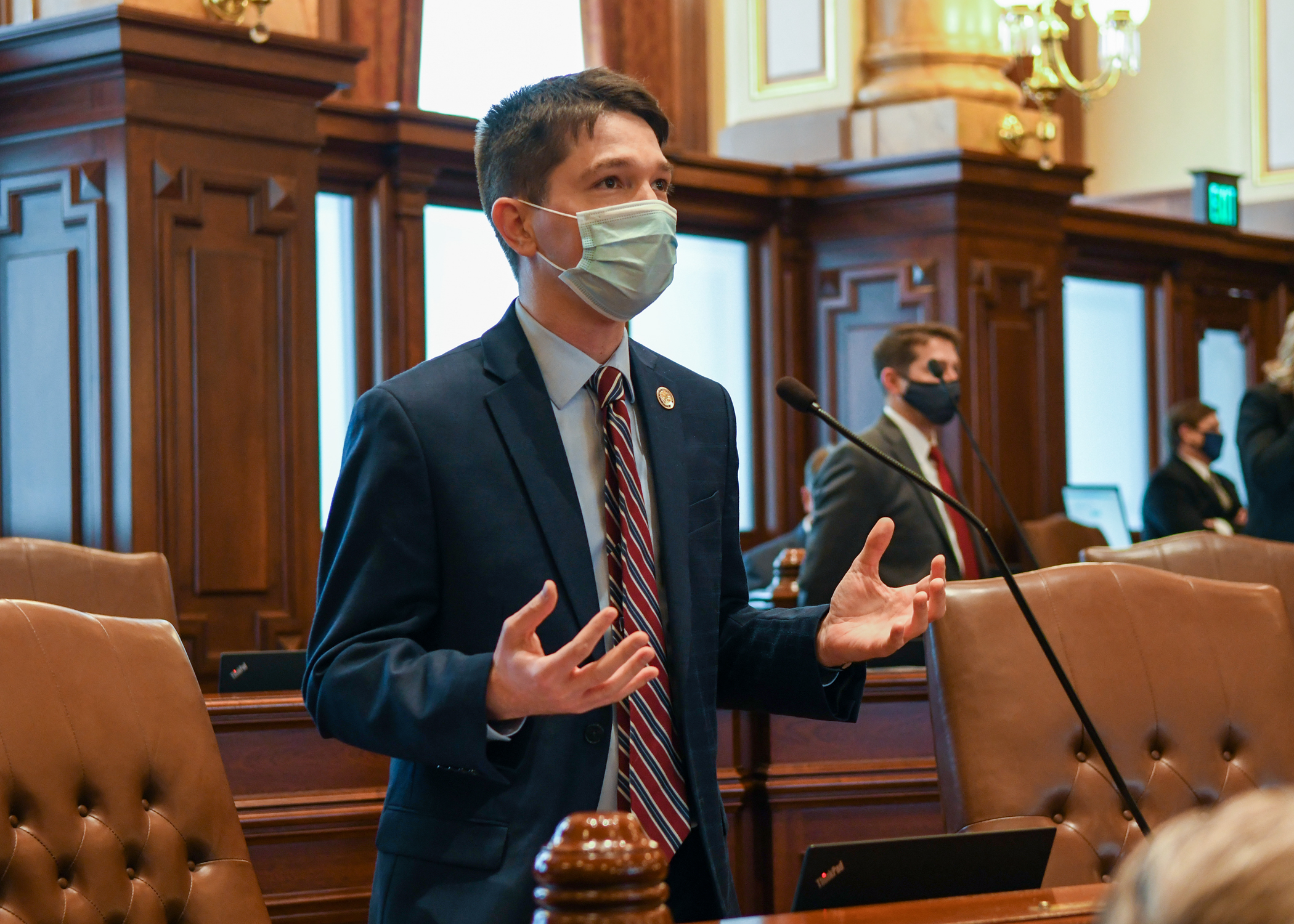WASHINGTON (AP) — President Joe Biden and former President Donald Trump will go before voters Tuesday in Pennsylvania’s presidential primaries, a prelude to the November general election, when the commonwealth is expected to once again play a critical role in the race for the White House. Further down the ballot, voters will also select nominees in competitive primaries for Congress, the state legislature and three statewide offices.
Biden clinched the Democratic nomination and Trump clinched the Republican nomination on March 12, and neither faces serious opposition on the primary ballot. Nonetheless, both presumptive nominees have campaigned in Pennsylvania in recent days with their focus more on the November election and each other than on Tuesday’s vote.
Biden just completed a three-day campaign swing that began Tuesday in his hometown of Scranton and concluded Thursday in Philadelphia in an event with members of the Kennedy family. Days earlier, Trump held a rally in Lehigh County, his third visit to the state this year.
Pennsylvania, with its 19 electoral votes, was one of three critical swing states along with Michigan and Wisconsin that went narrowly for Trump in 2016 after almost 30 years of voting for Democratic presidential candidates. Biden won back all three states four years later with a margin in Pennsylvania of about 80,000 votes out of more than 6.9 million votes cast, and the states remain key electoral prizes this November.
Democrats in the Keystone State also will decide competitive contests for state attorney general, treasurer and auditor general. For attorney general, five candidates are running for the nomination for the position once held by Democratic Gov. Josh Shapiro. They are Philadelphia attorney Keir Bradford-Grey, former auditor general and state Rep. Eugene DePasquale, former prosecutor and Bucks County solicitor Joe Khan, Philadelphia state Rep. Jared Solomon and Delaware County District Attorney Jack Stollsteimer.
The Republican primary for attorney general pits York County District Attorney Dave Sunday against state Rep. Craig Williams.
In the race to control the closely divided Congress, first-term Democratic U.S. Rep. Summer Lee faces a primary challenge in the 12th District from Bhavini Patel, a member of the Edgewood Borough Council in Allegheny County. The two have sparred over their positions on the Israel-Hamas war. Lee has accused Israel of “war crimes” in Gaza and was an early proponent of a cease-fire. She was also supportive of a campaign to vote “uncommitted” in Democratic presidential primaries to send a message to Biden over the war.
In the 10th Congressional District, six Democrats are competing for the nomination to face Republican U.S. Rep. Scott Perry, who played an active role in the effort to keep Trump in office after his loss to Biden in the 2020 election. A federal court recently ordered Perry to hand over hundreds of his texts and emails to FBI agents investigating the effort. His cellphone was seized in 2022 as part of the probe.
In the 1st Congressional District, Republican U.S. Rep. Brian Fitzpatrick faces a primary challenge from Mark Houck, an anti-abortion activist. In the 7th District, three Republicans are vying to take on Democratic U.S. Rep. Susan Wild in the fall.
Pennsylvania is also home to a competitive U.S. Senate contest, but Democratic U.S. Sen. Bob Casey and Republican David McCormick are both running unopposed in Tuesday’s primary.
Here’s a look at what to expect on Tuesday:
The Pennsylvania presidential and state primaries will be held on Tuesday. Polls close at 8 p.m. ET.
The Associated Press will provide coverage for the Democratic and Republican presidential primaries, as well as 48 additional races down the ballot. Biden and Dean Phillips will appear on the Democratic presidential ballot, while Trump and Nikki Haley will appear on the Republican ballot. Voters in both primaries are also given the option to write in a candidate. The AP will also provide coverage for contested primaries for attorney general, auditor, treasurer, U.S. House, state Senate and state House.
Pennsylvania has a closed primary system, which means that only voters registered with a political party may participate in that party’s primary. Democrats may not vote in the Republican primary or vice versa. Independent or unaffiliated voters may not participate in either primary.
Pennsylvania’s 159 pledged Democratic delegates are allocated according to the national party’s standard rules. Thirty-five at-large delegates are allocated in proportion to the statewide vote, as are 19 PLEO delegates, or “party leaders and elected officials.” The state’s 17 congressional districts have a combined 105 delegates at stake, which are allocated in proportion to the vote results in each district. Candidates must receive at least 15% of the statewide vote to qualify for any statewide delegates, and 15% of the vote in a congressional district to qualify for delegates in that district.
Pennsylvania has 67 Republican delegates. The winner of the statewide vote will receive all 16 at-large delegates. The state’s 17 congressional districts each have an additional three delegates, for a total of 51 district-level delegates, but they are not awarded to candidates based on the primary vote. Instead, people running to be a convention delegate appear on the ballot and are elected directly by voters. They are elected as unbound delegates, meaning they are not obligated to vote for any particular candidate at the convention. The AP will not report vote totals for delegate candidates.
In the presidential race, Biden and Trump are the favorites in their primaries as neither candidate faces a credible challenge. The first indications that they are winning statewide on a level consistent with the overwhelming margins seen in most other contests held this year may be sufficient to determine the statewide winners.
For other statewide primaries, the key jurisdictions to watch are the vote-rich counties of Philadelphia, Allegheny, Montgomery, Bucks, Delaware, Lancaster and Chester.
The AP does not make projections and will declare a winner only when it’s determined there is no scenario that would allow the trailing candidates to close the gap. If a race has not been called, the AP will continue to cover any newsworthy developments, such as candidate concessions or declarations of victory. In doing so, the AP will make clear that it has not yet declared a winner and explain why.
In Pennsylvania, races with a vote margin of 0.5 percentage points or less are subject to an automatic recount. The AP may declare a winner in a race that is eligible for a recount if it can determine the lead is too large for a recount or legal challenge to change the outcome.
As of April 15, there were more than 8.7 million registered voters in Pennsylvania, about 45% Democrats and 40% Republicans.
In the 2022 midterm primaries, turnout was about 15% of registered voters in both the Democratic and Republican primaries. About 42% of votes in the Democratic primary that year were cast before Election Day, compared with about 11% in the Republican primary.
As of Thursday, a total of 413,952 ballots had been cast before Election Day, about 73% from Democrats and about 26% from Republicans.
In the 2022 midterm primaries, the AP first reported results at 8:04 p.m. ET, or four minutes after polls closed. The election night tabulation ended at 2:45 a.m. ET with about 91% of total votes counted.
As of Tuesday, there will be 83 days until the Republican National Convention in Milwaukee, 118 days until the Democratic National Convention in Chicago and 196 until the November general election.
___
Follow the AP’s coverage of the 2024 election at https://apnews.com/hub/election-2024.
Brought to you by www.srnnews.com






















